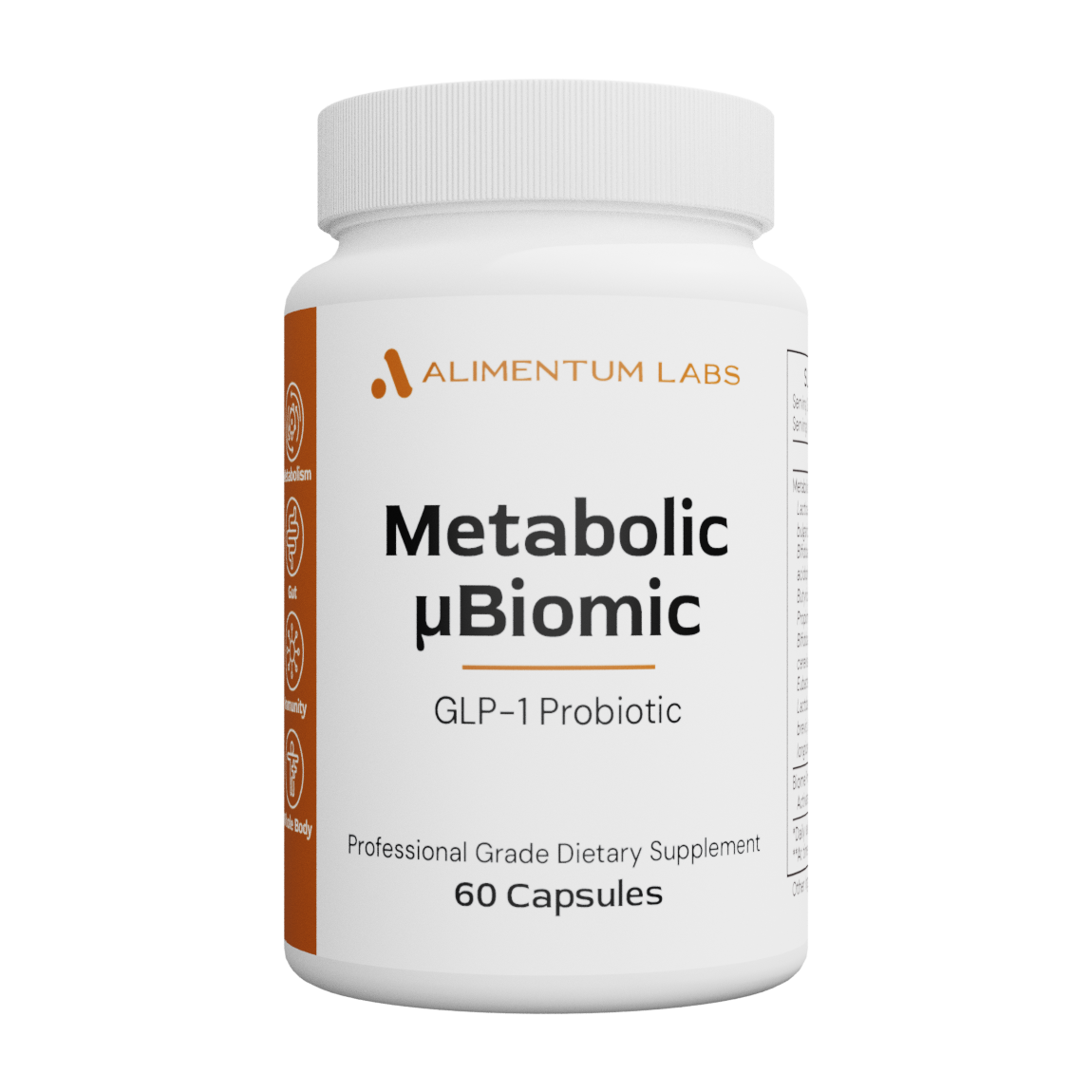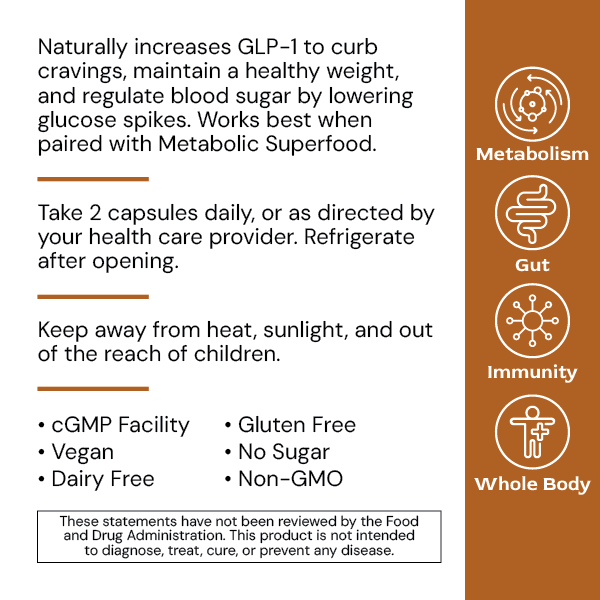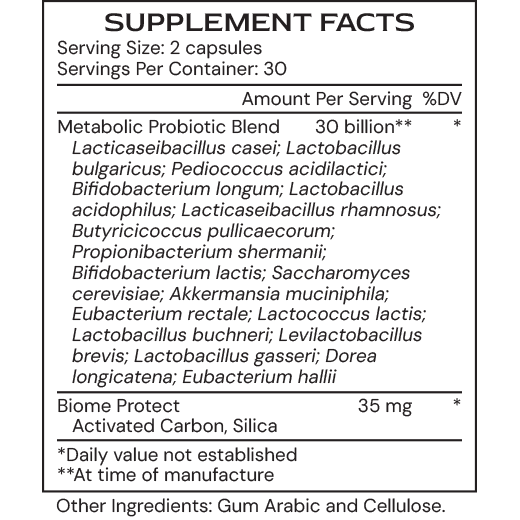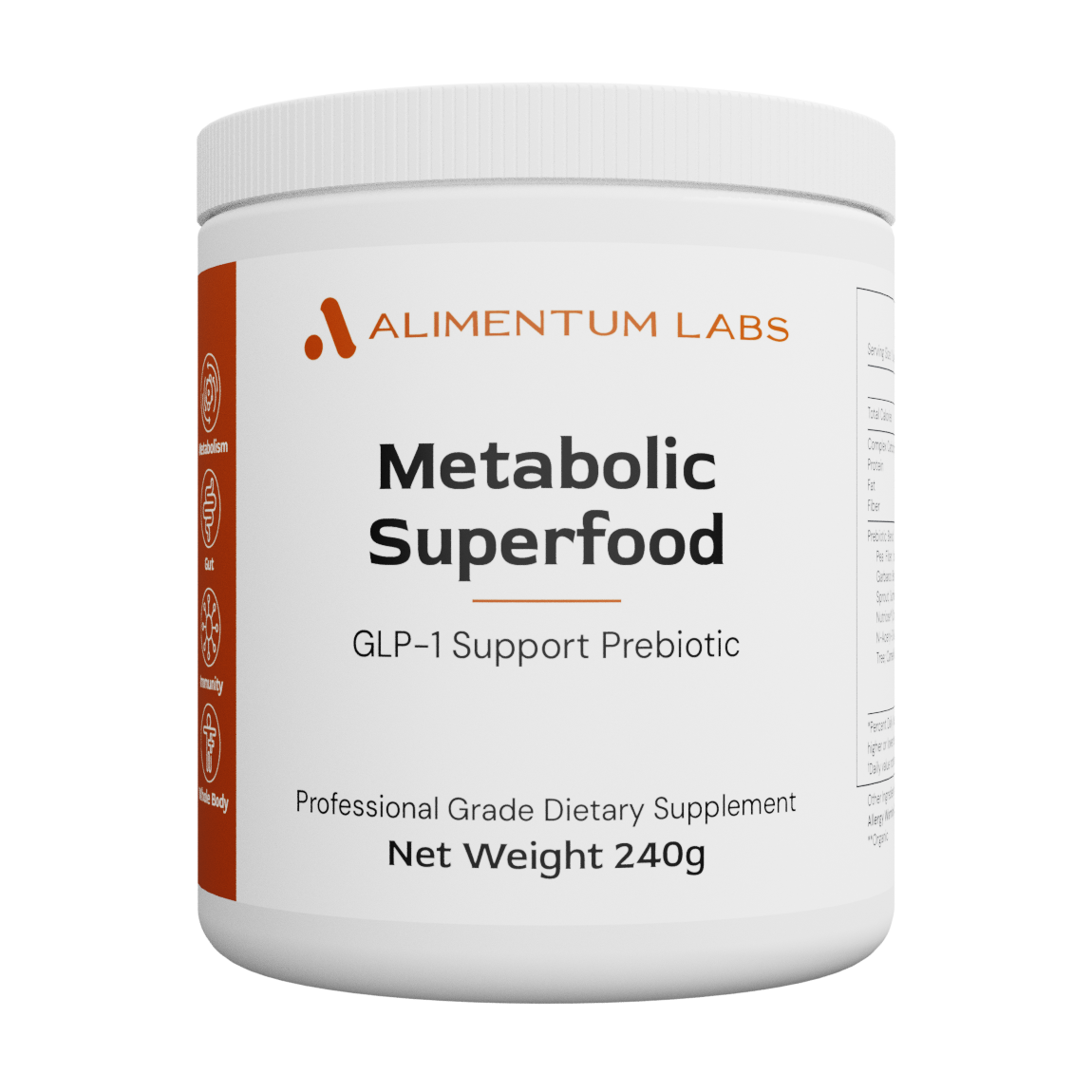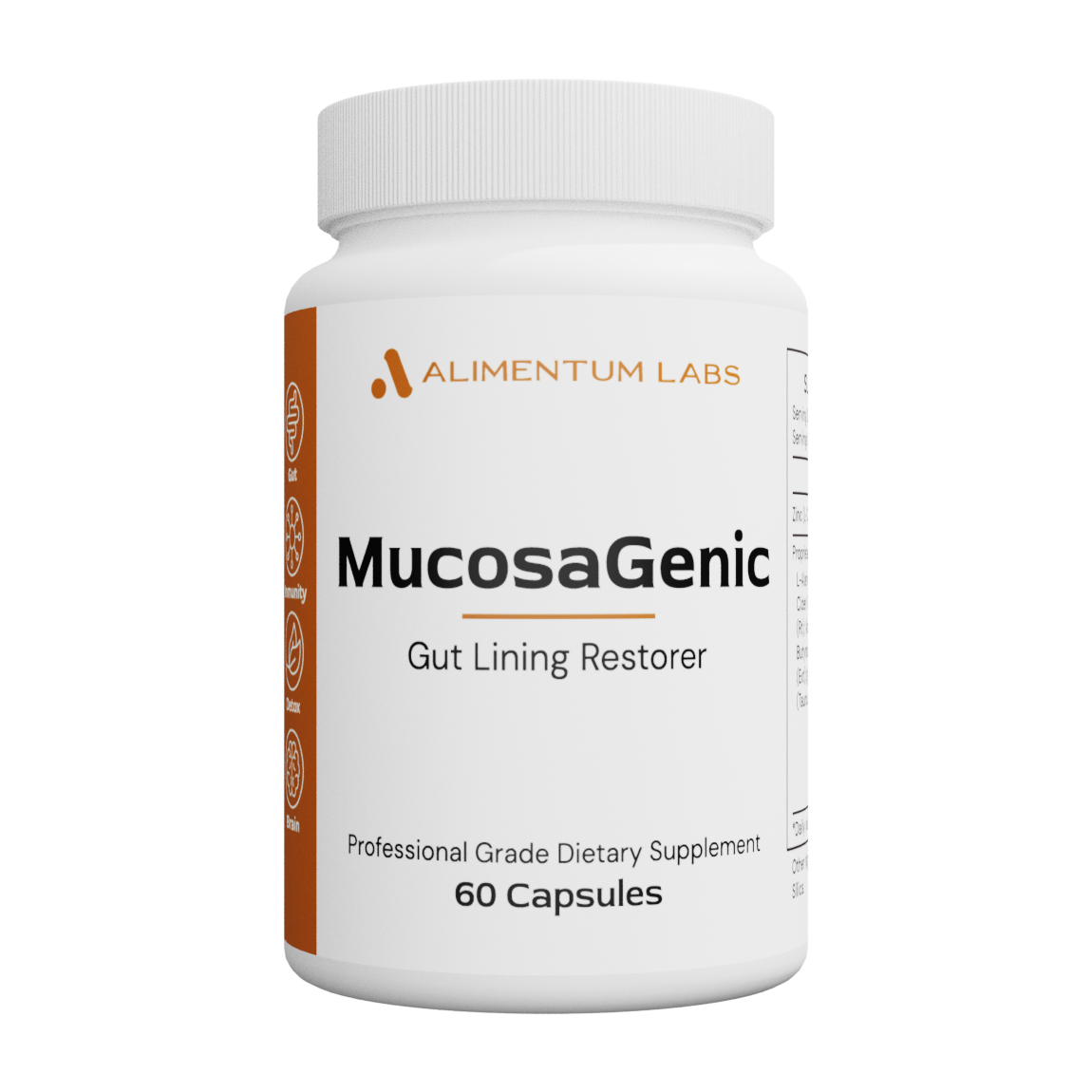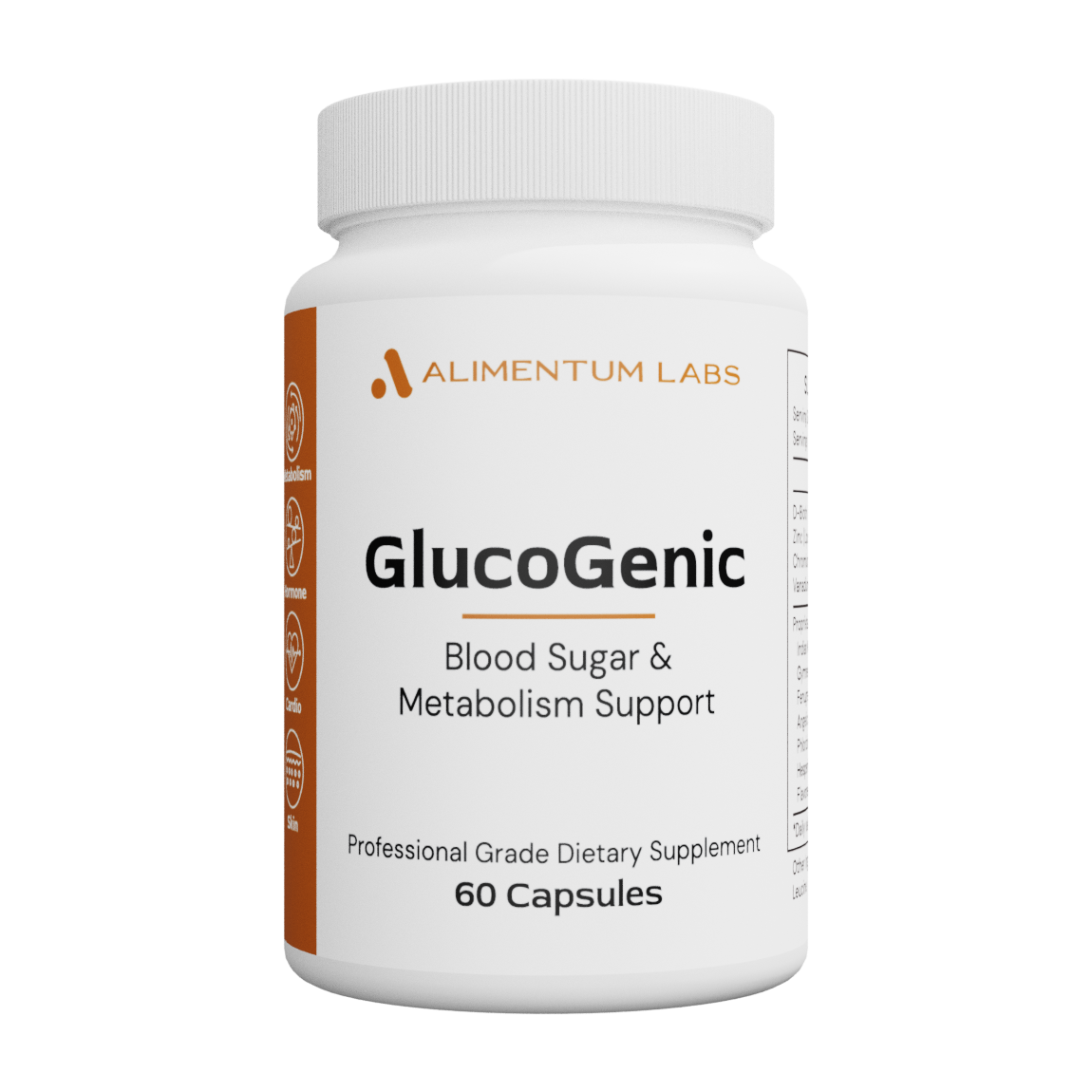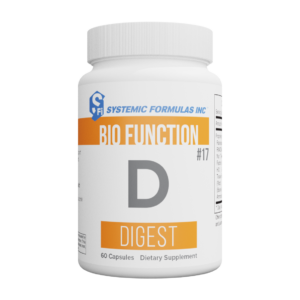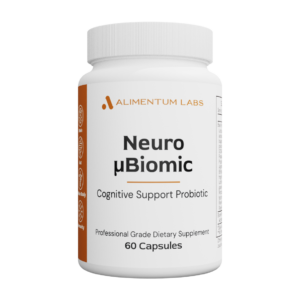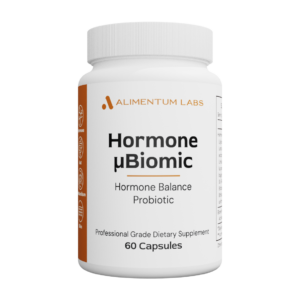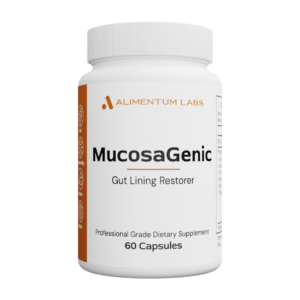Description
In Depth
Metabolic µBiomic is a cutting-edge probiotic formula designed to support healthy weight management, regulate blood sugar, and curb cravings by naturally enhancing GLP-1 production. This powerful blend of exclusive, research-backed probiotics works synergistically to restore balance in the gut microbiome, a key player in metabolic health.
By promoting beneficial bacteria like Akkermansia muciniphila and Christensenella minuta, Metabolic µBiomic improves insulin sensitivity, supports cholesterol regulation, and strengthens the gut barrier, while also increasing the production of short-chain fatty acids to reduce inflammation. This next-generation probiotic is your ally in achieving metabolic balance and optimizing long-term health.
Key Features
- Akkermansia muciniphila helps support a healthy weight and balanced blood sugar levels by enhancing gut integrity and reducing inflammation. This beneficial bacterium stimulates the release of gut hormones that regulate insulin secretion and appetite, helping to optimize glucose metabolism and improve overall metabolic control. Through these actions, it promotes a more efficient metabolic environment and contributes to better weight management and blood sugar regulation.
- Dorea longicatena produces metabolites like indole-3-acetate that regulate insulin levels, enhance satiety, and improve glucose control. These metabolites promote better insulin sensitivity and support weight management, while also contributing to increased muscle mass. This combination helps maintain energy balance, supports cardiovascular health, and reduces the risk of metabolic conditions like obesity and type 2 diabetes.
- Christensenella minuta plays a crucial role in metabolic health by influencing energy metabolism and modulating lipid metabolism. This beneficial bacterium has been linked to improved insulin sensitivity and a reduction in inflammation associated with metabolic disorders. Additionally, it supports a balanced gut microbiome by enhancing gut barrier integrity and decreasing levels of pathogenic microbes, which helps reduce systemic inflammation. Research shows that it can help decrease fat accumulation, particularly when consuming a high-fat diet, contributing to better overall metabolic function.
- Butyricicoccus pullicaecorum supports metabolic health by producing butyrate, a short-chain fatty acid that nourishes gut cells and strengthens the intestinal barrier. This probiotic helps reduce inflammation, supports healthy insulin sensitivity, and improves lipid metabolism, all of which contribute to better blood sugar regulation and weight management. Its ability to balance the gut microbiome also promotes a healthier metabolic environment, helping reduce the risk of metabolic disorders.
- Eubacterium hallii in Metabolic µBiomic helps regulate glucose metabolism and support healthy weight by producing short-chain fatty acids (SCFAs) like butyrate and propionate. These SCFAs enhance gut barrier integrity, reduce inflammation, and improve insulin sensitivity, all of which contribute to better blood sugar control and metabolic health. By modulating the gut microbiome, E. hallii also supports lipid metabolism and helps reduce the risk of metabolic disorders such as obesity and type 2 diabetes.
White Paper
The White Paper is your comprehensive guide to understanding this product. It details the ingredients, their functions, and how they work together to deliver results. Complete with usage guidance and safety information, it’s an invaluable resource for anyone seeking a thorough understanding of this formula.
Essential Ingredients
- Akkermansia muciniphila MS22
- Dorea longicatena MS14
- Christensenella minuta MS26
- Butyricicoccus pullicaecorum MS24
- Eubacterium hallii MS25
Directions
Take 2 capsules daily, or as directed by your health care provider. Refrigerate after opening.
Warnings
Keep away from heat, sunlight, and out of the reach of children.
Quality Guarantee
cGMP facility
Vegan
Non-GMO
Gluten Free
Dairy Free
No Sugar
Frequently Asked Questions
Who should take Metabolic µBiomic?
Metabolic µBiomic is ideal for individuals looking to support weight management, stabilize blood sugar levels, improve gut health, and enhance overall metabolic function. It’s particularly beneficial for those dealing with insulin resistance, metabolic syndrome, or cardiovascular concerns, as well as anyone seeking to optimize digestion, energy, and inflammation control.
How should I take Metabolic µBiomic?
Take 2 capsules of Metabolic µBiomic daily, or as directed by your healthcare provider. For optimal results, it is recommended to take Metabolic µBiomic with Metabolic Superfood. To extend shelf life, refrigerate after opening.
Can I take Metabolic µBiomic with other supplements?
Yes, Metabolic µBiomic can generally be taken with other supplements. It is specifically designed to be taken alongside its prebiotic partner, Metabolic Superfood, for optimal results. As always, it’s a good idea to consult with your healthcare provider to ensure there are no interactions with other supplements or medications you may be taking.
Why is Akkermansia muciniphila important for healthy glucose metabolism?
Akkermansia muciniphila supports healthy glucose metabolism by enhancing gut barrier function, reducing inflammation, and promoting GLP-1 secretion, which improves insulin sensitivity and regulates blood sugar levels. Its role in maintaining gut health is key to overall metabolic balance.
How does Metabolic µBiomic promote GLP-1 production?
Metabolic µBiomic promotes GLP-1 production by supporting the growth of beneficial gut bacteria, particularly Akkermansia muciniphila, which plays a key role in regulating gut hormones. These probiotics enhance gut barrier function and improve gut health, which can trigger the release of GLP-1 from L-cells in the intestines. GLP-1 helps regulate blood sugar, control appetite, and improve insulin sensitivity. By optimizing the gut microbiome, Metabolic µBiomic helps maintain balanced metabolic function and supports healthy glucose control.


